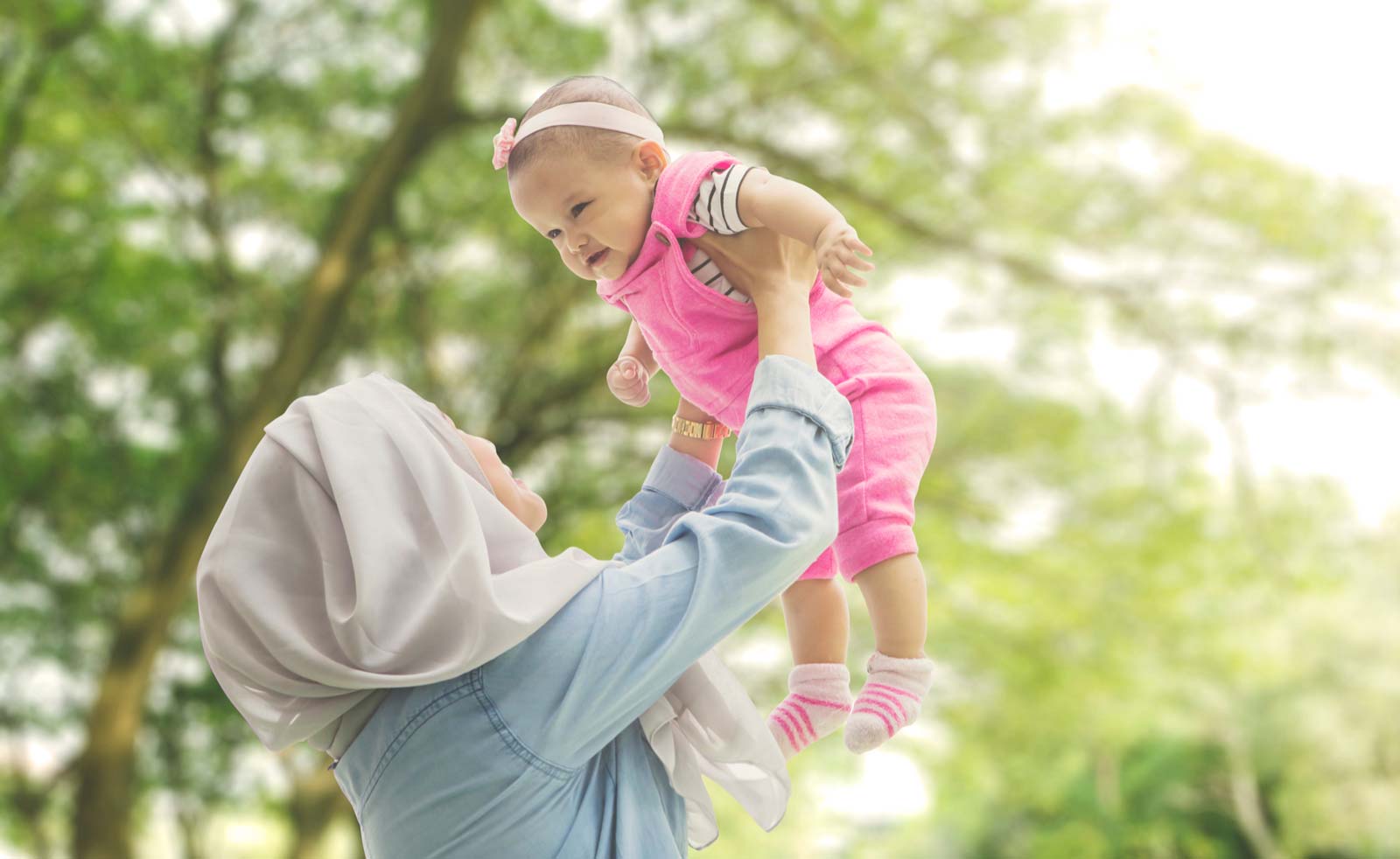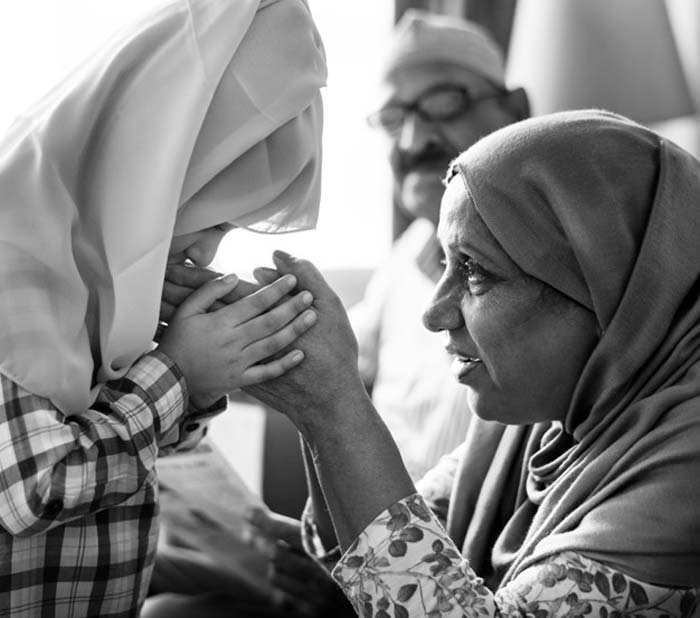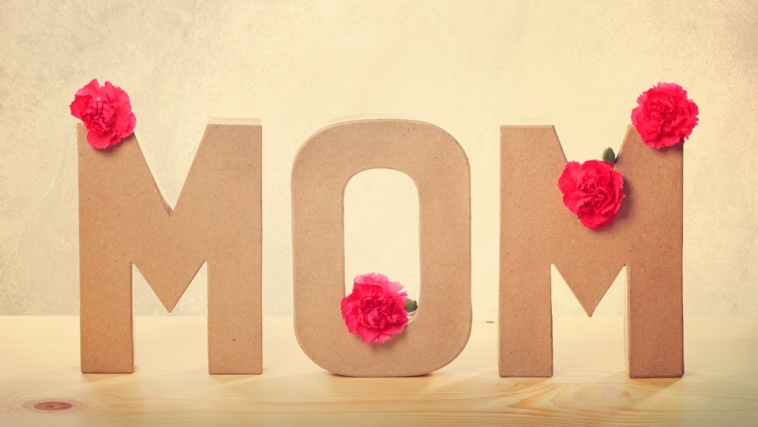As I sit down to write this article about the respect due to mothers in Islam, I can’t help but feel like a hypocrite.
I wonder where to start telling you about my relationship with my mother. The end? The beginning? Somewhere in the middle?
My mother passed away when I was eighteen years old. And while I understood at the time that her death meant I would never be the same, I had no idea how much regret I would carry with me every day.
The last time I spoke to my mother, it was her birthday and she was in a hospital bed recovering from surgery. She had a pain pump placed in her spine to counter the torture of the cancer she tenaciously fought for four years.
It was a last ditch effort to make her comfortable in her last days. I didn’t realize that at the time.
I made an excuse to leave her alone in that hospital on her 48th birthday and go back to college, citing a fictional study session I needed to attend.
In reality, I wanted to get back to campus so I could hang out with my friends.
The next time I saw her, she was incoherent. She was in too much pain and on too many ineffective drugs.
I walked away from this woman who put notes of encouragement in my lunch box all through my elementary schooling.
I abandoned this amazing human being who let me lay in her lap on bad days even when I was way too big.
So, I wanted to be with my friends more than my mother who gave me special attention even when raising five other children and always told me I could be whatever I wanted. But I walked away.
I didn’t know that:
Paradise lies at the feet of mothers. (An-Nasa’i)
I learned the hard way that you will never be loved so completely in this world as you are loved by your mother.
Your mother suffered to carry you. She experienced pain beyond compare to birth you. And she lost sleep to tend to you. She cleaned you and fed you when you couldn’t do it for yourself. And she was your first and most impactful teacher. She put up with you when you threw tantrums and when you knew it all as a teenager.
The fact that you are alive today is a testament to your mother’s love, suffering, and investment in you. An investment that can never be repaid. It is too great. So Allah tells us to:
[…] lower unto them the wing of submission and humility through mercy, and say: ‘My Lord! Bestow on them Your Mercy as they did bring me up when I was small.’ (Quran 17:24)
I had no point of reference at eighteen to understand all that my mother had done for me. I took it for granted. And I had no idea the requirement upon us all to be good to our mothers. I imagined her tireless work in raising me was just her job. I was an idiot.
That was until I witnessed a daughter’s good treatment of her less than amazing mother. When I converted to Islam a few years after my mother’s passing, I came to know a fellow convert by the name of Mary.
The Story of Mary
Mary had an entirely different upbringing than I did.
Her mother, Stacy, was not stable nor was she openly loving or tender to Mary.
When Stacy found out that Mary, at the age of 16, had become a Muslim, she did all she could to turn Mary away from the path of Islam.
Stacy hid pork in her food. She made fun of and tried to distract Mary from prayer. Stacy mocked the greeting of “Salam” in a vulgar way and even encouraged Mary’s brothers and sisters to do the same. Mary stayed firm in her belief and remained patient and respectful of her mother in spite of this bad treatment.
As Mary got older and became independent of her family, she started a life on her own, keeping in contact with her family. As she established herself in her career and community, Mary made a stable life for herself.
Then one day she got a call from her sister saying that her mother was addicted to drugs and was about to be homeless.
Mary asked her mother if she would come to live with her. She gave up her bedroom and slept on the couch to make her mother comfortable.
As time passed, Mary became aware that Stacy was still using drugs and was now stealing from her. Mary remained patient and respectful and recommended her mother get help. In response, Stacy continued to belittle Mary’s choice in faith and began to invite a dangerous element to Mary’s home.
Knowing about Mary’s situation, I asked her how she could be so patient in such a terrible situation. I knew what it was to lose a mother, but this situation seemed utterly horrifying.
Mary told me that all she was and is, is because Allah gave her such a mother. She told me that even though her mother was down now, she had at one point carried her with patience.
Mary said she knew it was now her turn to attempt to return the favor even tough Mary knew she never could.
She quoted Quran:
And We have enjoined on man (to be dutiful and good) to his parents. His mother bore him in weakness and hardship upon weakness and hardship, and his weaning is in two years. Give thanks to Me and to your parents, unto Me is the final destination. (31:14)
And hadith:
Do good to and serve your mother, then your mother, then your mother, then your father, then the near relatives and then those who come after them. (Al-Bukhari)
And she hoped for her reward with Allah.
Rahmah in Islam
I couldn’t help but think how this love Mary had for her mother was so pure and inspiring.
I couldn’t help but think how if we all incorporated even a little of this mercy we would all be better off. And I learned that love, mercy, and respect- for mothers especially- go hand in hand.
As Adnan Majid explains it:
“[the connection between] rahmah (mercy) and motherly love is linguistically unsurprising, for rahmah is related to the Arabic word rahm, which means ‘uterus,’ ‘womb,’ and figuratively ‘family ties.’
This close linguistic connection is so eloquently expressed in Allah’s statement as transmitted in a hadith qudsi:
I am al-Raḥman and created the rahm (uterus) – And I named it after Me. (At-Tirmidhi)
Therefore, if we are to grasp the mercy (rahmah) that is core to God’s very nature, we must look to what this feminine organ symbolizes – the nurturing emotions we find in mothers and the bonds that tie families together”.
Reverencing Allah, the reason for our creation, is so intertwined with reverencing our mothers that Allah tells us in the Quran:
O mankind! reverence your Guardian-Lord, who created you from a single nafs, created, of like nature, His mate, and from them twain scattered (like seeds) countless men and women;- reverence God, through whom ye demand your mutual (rights), and (reverence) the wombs (That bore you): for God ever watches over you. (4:1)
While I am not a mother myself, by the will of Allah, I watch my sisters have children and suffer and sacrifice for them. I am so proud of how amazing they are as mothers.
Watching them, it becomes ever clearer to me how much my mother gave up so that I could be me. I realize how indebted we all are to our mothers’ tireless efforts. I see how much love and mercy Allah has put in the hearts of mothers.
In Islam, love is a necessity of faith and no one deserves our love, respect, and mercy more than our mothers.
I hope that those of you who still have mothers will not realize or act on this too late.
(From Discovering Islam’s archive.)



